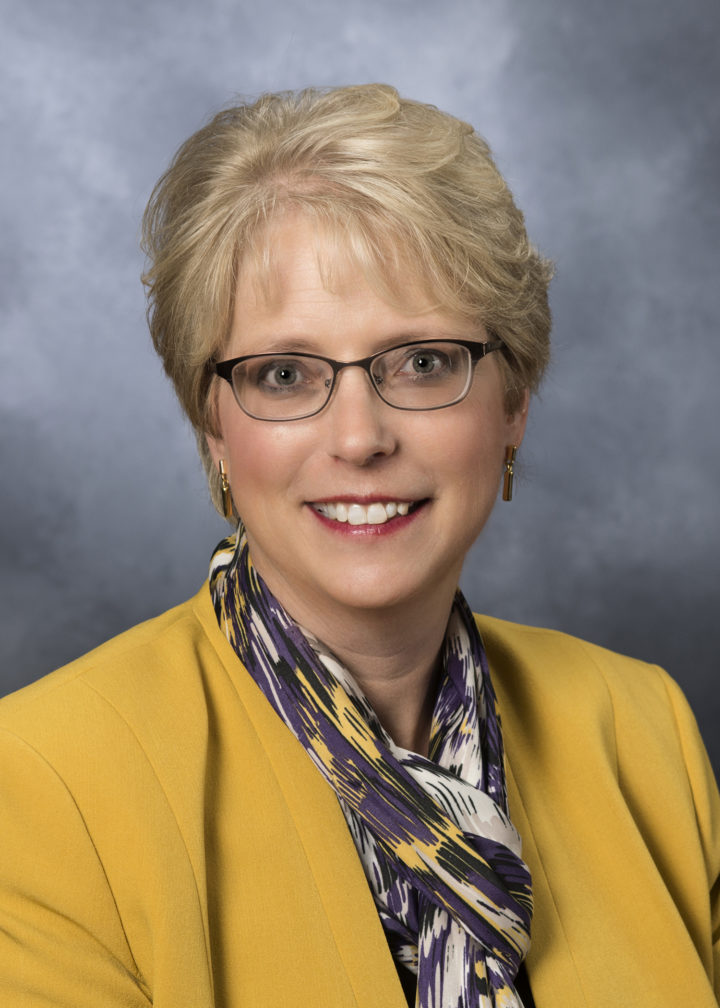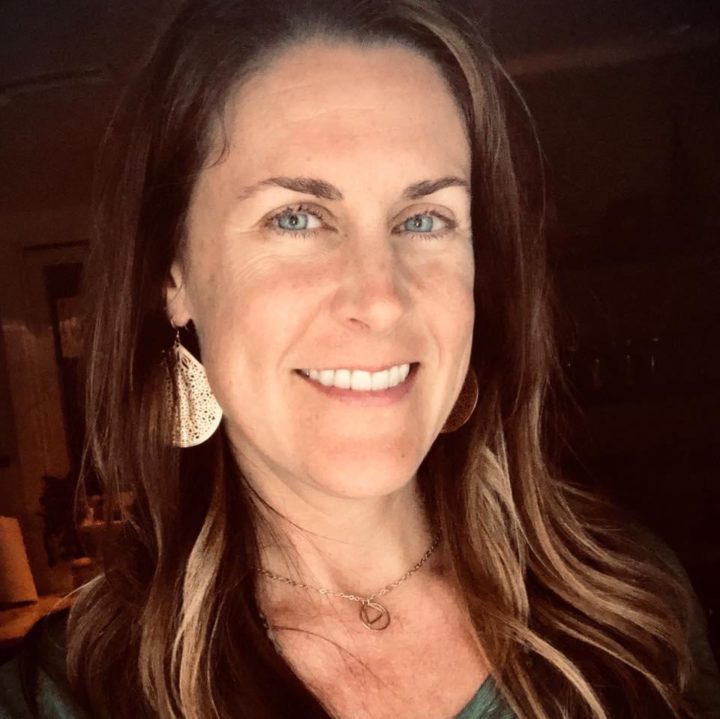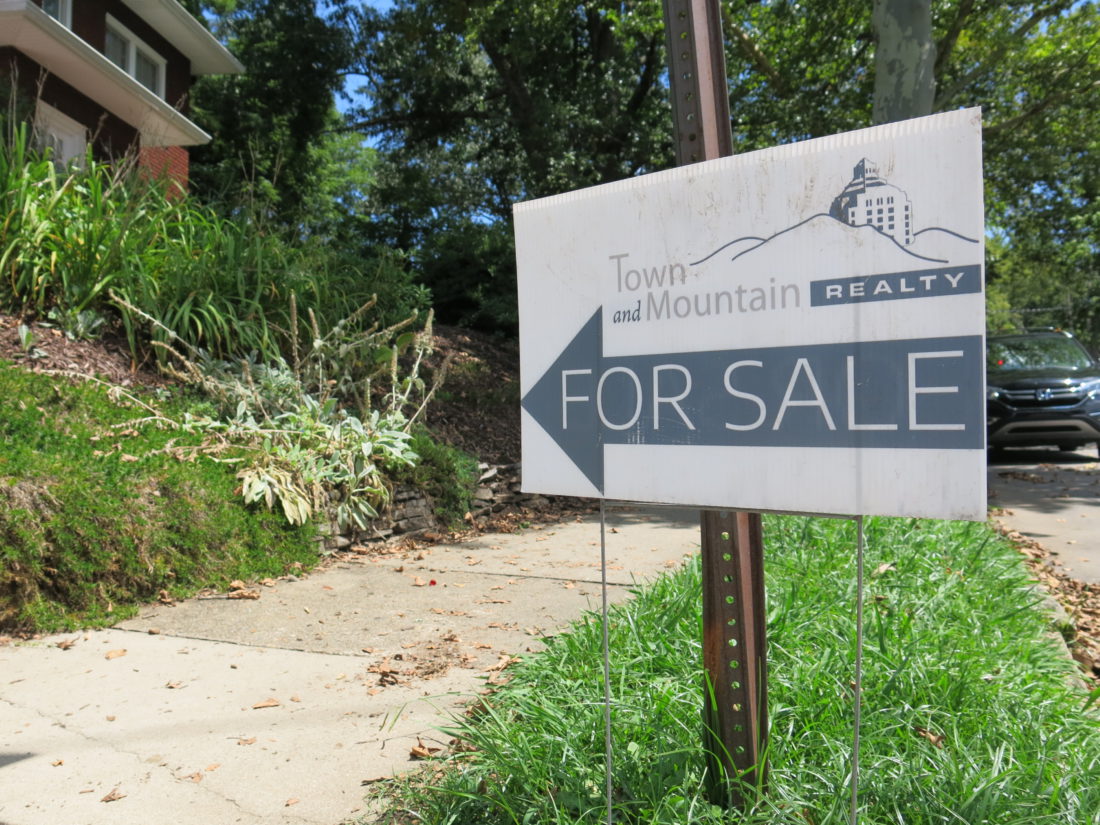Prior to COVID-19, Ford Willis of Town and Mountain Realty dealt almost exclusively with regionally based clients. “I’m from Western North Carolina,” he explains. “So the vast majority of my business has come from my local network.” But over the last few months, he continues, “I have had almost all out-of-state buyers.”
Some are relocating here for work; others have settled on Buncombe County as their retirement destination. But a number of his new clients, Willis reveals, are in search of “a little more breathing room” in response to the pandemic. Coming from places like San Francisco, Atlanta, Raleigh and D.C., these people are leaving densely populated cities behind yet are able to maintain their higher salaries via remote work in such industries as tech and finance.
“We think the real estate market here is quite expensive, which it is,” says Willis.
Research by the Charlotte-based Canopy Realtor Association backs up that assessment: In July, the median sale price for a home in Asheville was $341,000, up 2.4% from the same month last year. The average sale price was $410,012, a 3% increase. Buncombe County as a whole showed slightly lower figures but bigger increases: a median sale price of $329,575, up 7.4% from last year, and an average sale price of $388,315, a 7% jump.

But for buyers from San Francisco, Willis points out, “They’re spending half as much as they would in California and getting twice the house.”
Amid record high unemployment and continuing pandemic-related uncertainties, Willis and other local experts believe this influx of outsiders is a major factor in the city’s current real estate boom.
In July, pending home sales in Asheville increased by 40.1% compared with last year, the Canopy data shows. And the average length of time a property stayed on the market dropped sharply, from 66 to 47 days. And while new listings are up slightly for both Buncombe and for the multicounty Asheville metro, inventory remains low both within the city limits and across the county, with sharp declines throughout most of 2020.
Due to the shortage of available properties, local agents say many buyers are looking beyond Buncombe to neighboring counties such as Haywood, Henderson, Madison and Transylvania. Homes are somewhat cheaper in the first three, though all four counties are now experiencing similar spikes in both sales and home prices.
Looking ahead, a key question remains: How long will this boom last?
Higher risk, tighter rules
Those soaring numbers are part of Asheville’s larger COVID-19 real estate narrative, stresses Linda Youngblood, senior loan officer at Movement Mortgage. Initially deemed nonessential workers under the state’s “stay home, stay safe” mandate, real estate agents saw a precipitous drop in business in the latter half of March. But mere weeks later, after the industry had been re-classified as essential, “The real estate market went gangbusters,” Youngblood explains.
Low mortgage rates, which are currently hovering around 3.18%, are a key reason for the boom, she points out. “There’s an inverse relationship between the market and mortgage rates: The more uncertainty there is in the market, the better the mortgage interest rates get.”
At the same time, continuing concern about high unemployment numbers and homeowners’ desire to take advantage of those low rates by refinancing have led to “slower turnaround times for appraisers, attorneys and underwriters,” says Lynn Davis, a loan officer at Alcova Mortgage.
That’s especially true for buyers who are self-employed. For these applicants, notes Davis, underwriters are now requiring two years of tax returns, a year-to-date profit and loss statement and an update on the buyer’s current workflow 10 days prior to closing.
Homebuyers who’ve experienced work furloughs during the pandemic also face more stringent regulations. In those cases, underwriters are requiring two 30-day pay stubs, reflecting both pre- and post-furlough earnings. A letter of explanation about an individual’s temporary unemployment is also part of the new process.
“All these extra layers of risk have been put in because of COVID,” Youngblood explains. “And that’s been hard, to ask for all these things that we’ve literally never had to ask for before.”
Navigating stress

With so many additional hurdles to clear, agents and lenders alike strongly advise potential buyers to get their ducks in a row before getting attached to a particular property. Because in Asheville, the real estate market waits for no credit report.
Sherrie Puffer, operating principal at Keller Williams Asheville, says she received multiple offers on her Fairview home the first weekend it was listed in July. “As a seller, it’s nice,” she says. “But as a Realtor, I prefer a little more balanced market.”
The reason is simple, she explains. When demand is as high as it is right now and inventory is this low, the stakes intensify for interested homebuyers. Part of an agent’s job, she notes, is to mitigate clients’ anxiety. Add a pandemic to the mix and real estate professionals end up wearing a lot of different hats on any given day.
“We joke that we took a side job as therapists,” says Steph Cochran of Mosaic Community Lifestyle Realty. “The pandemic has caused us to realize we need to keep a cool head and be an anchor to help guide clients through the process.”
Along with managing stress levels, agents must also navigate new pandemic guidelines. In the early days of COVID-19, Puffer reveals, her company teamed up with several other local real estate agencies to develop shared health and safety standards. Masks and social distancing are required, showing a property to multiple clients at the same time is prohibited, and all interested buyers must fill out a disclosure form before entering a home. The form includes questions about health symptoms as well as any potential exposure to the virus that the person may have had — a particularly relevant point considering the number of out-of-state buyers arriving from such hot spots as Houston, New York City and South Florida.
And meanwhile, notes Cochran, sellers always have the right to cancel a showing if they feel it poses a health risk, regardless of what the disclosure form says.
Adjustments and opportunities
These safety measures, though, have challenged agents to find creative approaches to their work. Before COVID-19, for example, they typically chauffeured clients from property to property, creating additional face time with buyers and a chance to share relevant information about the area. But these days, they caravan, with agents providing guided cellphone tours as they move between showings.
Lenders, too, have had to adjust. In the early days of the pandemic, Davis recalls, clients were signing documents on the hoods of cars. And Youngblood, who was used to in-person meetings and social gatherings, has had to rely on digital platforms to stay connected.
At the same time, agents say sellers are now more readily embracing previously underutilized technologies. “The majority of listings that are up now come with virtual walk-throughs,” notes Cochran. “Before, that wasn’t always the case.”

The Matterport platform, which offers prospective buyers a 3D tour of the home, “used to come along with higher-end listings for the most part,” says Willis. “But now I’m seeing them all the time.”
These features, he emphasizes, aren’t meant to replace an in-person walk-through. They simply enable interested buyers — particularly those coming from out of state — to preview properties on the cheap and from the safety of their home, reducing the total number of in-person visits they might otherwise require.
Both agents, though, note that in recent months, some clients have put in offers without ever setting foot inside the property. “It’s not something I generally recommend,” cautions Willis. “I think you only get the real perception of the home when you go to visit it. But I understand the need at this time, with how competitive the market is.”
For Cochran, the decision to buy sight unseen comes down to the level of familiarity and trust between agent and client. In her case, she explains, “I’d been working with the buyer for a while, so I knew the lens they were looking through. If it had been a new client I would have had some discomfort, because I just wouldn’t have known their lens well enough to recommend that we go ahead with it.”
Breathing room
Meghan Carroll, who moved here from Raleigh, recently bought her first house, a three-bedroom, 2 1/2-bath property in Arden. Like many new arrivals, she came with job in hand, continuing her work as a scheduler for a landscaping company with markets throughout the Southeast.
Having worked remotely since the onset of COVID-19, Carroll says the one-bedroom apartment she’d been renting made one thing clear: Her new home had to include room for an office. “When you’re crammed up in a little spot, you can’t transition between work mode and house mode,” she explains. “Having a little more space helps with that.”
Buyers who, like Carroll, work remotely often share that concern. Cochran, however, says her clients tend to care more about a property’s proximity to trails and greenways than about specific interior features. “People looking at this area are usually outdoors people,” she says. “So they want access to outdoor space.”
Current homeowners, notes Willis, are also showing increased interest in upgrading their personal outdoor space. “We’re seeing trends in usable and enjoyable outdoor commodities” such as pools and spas, he reports. “And it makes total sense, considering the amount of time people are now spending at home.”
Uncertain future
Despite the current boom, real estate agents are divided about the market’s short-term prospects. Willis points out that the last two months have seen year-over-year gains in pending contracts. “That’s typically a sign for more activity down the line,” he explains.
But over at Keller Williams Asheville, Puffer says she’s hearing from her agents that both sellers and buyers, nervous about the upcoming election, are starting to postpone decisions until after November.
In a normal real estate cycle, she continues, “The region’s market does start to slow down after the leaf season.” However, says Puffer, “These aren’t normal times, so I don’t want to make any wild predictions.”
Meanwhile, back at Mosaic, Cochran echoes the advice that company owner Mike Figura shared during a recent Zoom conference call with his agents. “He suggested we not try to read the tea leaves too closely,” she reveals. “Because there are so many things in play that we’re just unaware of, long term.”




Real Estate sales are a lagging indicator.
The last people who you should ask about how real estate is doing are real estate brokers. It’s a pseudoproffesion.
The overbuilt rental market has nearly collapsed with ‘Passco’ – a REIT out of California (as one example) , who owns several complexes in the area, being out of cash and out of business by the end of the year. They’re already in BoC to their property managers. The City of Asheville has already had to give people more time to pay their property taxes. As soon as these new buyers see the hollowed-out shell of what is left of Asheville they’ll be selling fast to get out fast. This will further depress real estate prices.
The eternal night is coming and it is going to be horrifying.
“Human sacrifice, dogs and cats living together, MASS HYSTERIA!!”
https://youtu.be/-sED4fzIV0k?t=14
But will the resulting depression result in a decrease in the median “affordable” price of $250,000 per home? I doubt it. It will just mean a lot of $500K to $1 million + homes being offered at a happy discount, which will be scarfed up quickly, leaving the working class to continue to scramble for their scraps from the table.
The REAL pain is going to be, as Asheville/Buncombe tries to recover from COVID-19 tourism & hospitality malaise , wait staff, hotel workers, retail staff , and even nursing staff at Mission have to live in and commute from trailers and sublets in adjacent counties and pay for downtown parking while living on low wages and no benefits. I predict a flow of working stiffs OUT of Asheville even as the wealthy retirees and hipsters flock in.
If you are a senior wanting to retire in “beautiful WNC”, I hope you are ready for long waits in the restaurants and you don’t get sick or have to go to the hospital, because THAT is where you are going to pay for the discount on your mini mansion on the mountainside.
Yep. It’s a mistake to treat Asheville/Buncombe as if it’s one housing market, when there two or three exist in parallel: there’s a narrow market for middle-class homeownership, where you’re negotiating the tradeoffs between living space and distance from… anything; there’s a big fancy market where high-earning professionals hang out with people bringing a pile of cash from elsewhere (yeah, it’s the Fresh Market); and then there’s whatever’s left for renters. Any talk of medians hides the distribution.
It’s almost as if the model whereby realtors are paid a percentage of the sale price helps further distort things.
Rentals are in demand closer to town for sure… but yes the suburban mega complexes are probably overbuilt…
So I guess a BA or a Master’s in Real Estate management is BS too?
Total BS. Just like politics isn’t a science and business related degrees are similarly worthless. The secret to ANY business (no degree required) is taking a ten cent product and selling for a dollar. That’s it. You’ve graduated. And for bonus points: Almost no “reporter” (journalist is far too grandiose a term) ever studied reporting or “journalism”. Just like almost no great photographers ever studied photography, or great filmmakers never studied filmmaking. You can, possibly, teach the mechanics of these things but never give someone that special something that leads to success.
Harold, How did you get so smart? What do you do for a living?
How WONDERFUL to know that real estate professionals are doing so well. I just had to leave my rental home of four years because my former landlord is one of those greedy money worshippers and am now living off the kindness of my kids, and can barely afford to pay my bills but hey, as long as the local real estate market is thriving, well, what more could I ask for? Trashville, you are SO overrated.
I’d love to know who’s buying up all the houses in Buncombe County. A house comes on the market and within a week its under contract. REIT’s have been on the sideline and are starting to spend. I home mtnexpress can do some digging and get to the bottom of this.